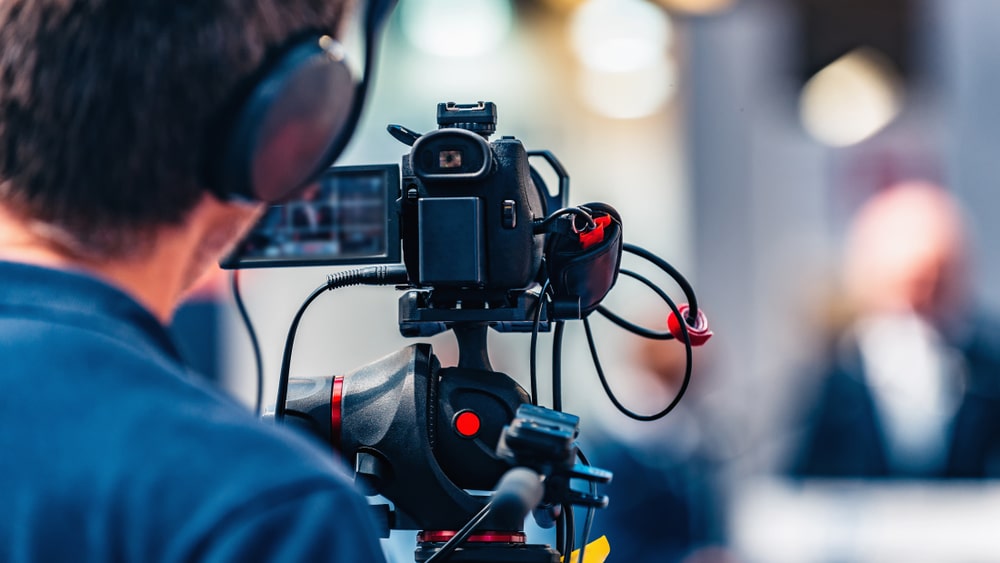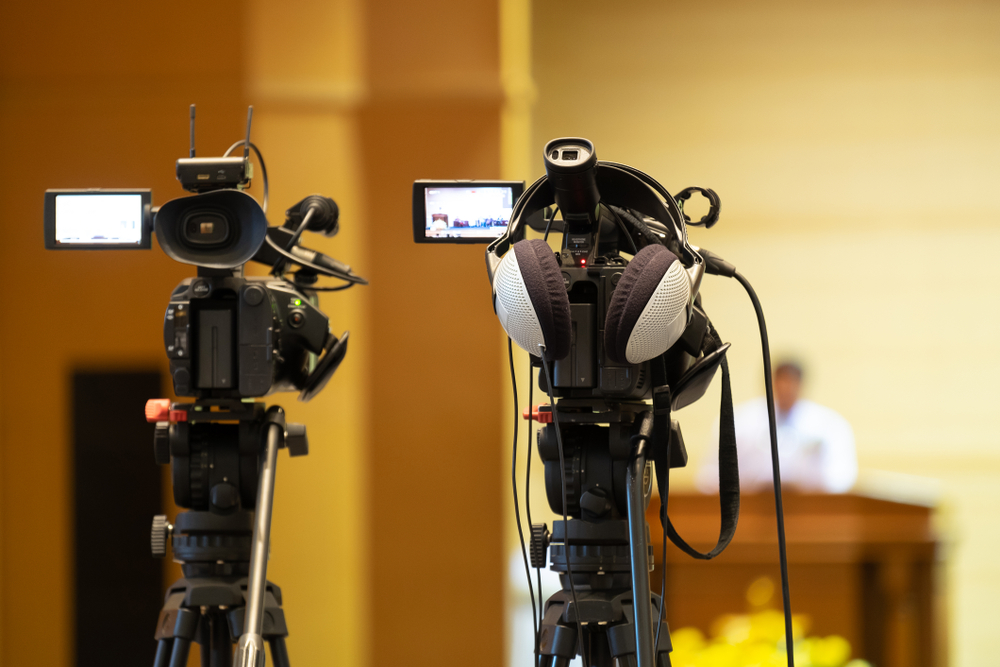The Significance of Lawful Video Depositions in Modern Legal Solutions: What You Must Know
Legal video depositions have ended up being important in today's legal landscape. They give a multidimensional view of witness testaments that conventional records simply can not match. By catching both non-verbal and verbal communication, these depositions enhance the total understanding of a witness's reputation. However, the performance of video depositions rests on various aspects, consisting of conformity with legal standards and best techniques (legal video depositions). Exploring these aspects reveals their real significance in modern-day legal services
What Are Legal Video Depositions?
Lawful video clip depositions offer as an important tool in the lawsuits procedure. They involve recording witness testaments in a video format, catching both verbal and non-verbal interaction. This technique enables lawyers to record the behavior, expressions, and reactions of witnesses, supplying a richer context for the testimony. Normally conducted in a controlled atmosphere, these depositions are led by attorneys who ask questions while a stenotype reporter documents the dialogue. The resulting video clip can be crucial for trial preparation, as it allows lawyers to evaluate the integrity of witnesses and improve their strategies. In addition, legal video depositions can be made use of in various legal contexts, ranging from civil conflicts to criminal situations. The aesthetic and auditory aspects of video depositions improve the presentation of proof, making it an essential part in the modern-day lawful landscape. In general, they add significantly to the effectiveness and efficiency of lawful process.

Advantages of Video Depositions Over Standard Techniques
Video depositions supply numerous advantages compared to standard approaches of taking witness testimonies. One substantial benefit is the ability to record both audio and aesthetic components, supplying a much more comprehensive record of the witness's statements. This double layout enhances clarity and permits attorneys to reference specific subtleties during trial prep work. Additionally, video depositions facilitate remote engagement, making it much easier for witnesses who may be inaccessible for in-person looks due to geographical constraints or health and wellness issues.Moreover, video depositions can speed up the overall deposition process, minimizing the moment and costs related to traveling and logistics. They also boost access, as tape-recorded depositions can be conveniently shared among lawful teams and referenced at any type of time. This convenience adds to better case management and preparation. On the whole, video clip depositions stand for a modern-day, efficient technique to collecting witness testaments, straightening with the developing needs of the lawful career.
The Role of Body Movement and Tone in Testimonies

In lawful video clip depositions, body language and tone play essential roles in communicating a witness's reputation and credibility. Nonverbal signs can offer understandings into a witness's emotional state, affecting how their testament is perceived. Recognizing the impact of these components is essential for jurors and attorneys alike when examining the integrity of a statement.
Nonverbal Communication Insights
While spoken communication is often stressed in lawful testimonies, nonverbal cues such as body movement and tone play an essential function in communicating trustworthiness and feeling. Onlookers of depositions may keep in mind that a witness's stance, gestures, and facial expressions can significantly affect assumptions of dependability. For instance, consistent eye contact may indicate confidence, while avoiding gaze can recommend deceit or pain. Likewise, the intonation-- its pitch, quantity, and pace-- can present sensations of sincerity or uncertainty. Legal specialists need to be in harmony with these nonverbal signals, as they typically give crucial context that matches spoken words. Understanding these nuances can boost the efficiency of depositions and influence the end result of legal process.
Psychological Tone Effect
The psychological tone communicated during lawful testimonies substantially influences exactly how a witness is regarded. Body language, singing inflections, and faces play vital roles in forming the narrative of a statement. A witness exhibiting self-confidence with constant eye call and a calm tone can infuse a sense of integrity and interaction. Alternatively, indicators of anxiety, such as fidgeting or an unsteady voice, might bring about skepticism concerning their account. The subtleties of psychological expression can affect the interpretation of facts, making it important for legal specialists to identify these hints. In video depositions, the visual and auditory elements combine, stressing the importance of emotional tone in sharing genuineness and truthfulness within the legal process.
Reputation and Trustworthiness
A crucial consider developing reliability and reliability during testimonies depends on the witness's body movement and tone of voice. Viewers commonly depend on non-verbal this article signs-- such as eye get in touch with, posture, and motions-- to examine a witness's genuineness. A witness that preserves eye get in touch with and presents open body language may be perceived as more truthful and reputable than one who avoids eye get in touch with or appears shut off. Furthermore, tone of voice plays a crucial role; a constant, tranquil tone can enhance the integrity of the statement, while changes in pitch or volume might raise doubts. Ultimately, the mix of body language and singing tone greatly influences exactly how a witness's statements are gotten and interpreted in a legal context.
Finest Practices for Performing Video Clip Depositions
Performing video clip depositions calls for cautious preparation and execution to guarantee a efficient and clear presentation of statement. It is important to select a silent, well-lit location to minimize distractions and protected ideal video high quality. The tools ought to be examined in advancement, including video cameras, microphones, and lighting, to avoid technological problems during the deposition.Next, parties involved need to examine the style and treatments ahead of time, making certain that everyone understands their roles. The deponent must be briefed on the procedure, consisting of just how to respond plainly and concisely.Additionally, preserving a specialist temperament throughout the session is necessary. This includes avoiding speaking over each other and confirming that all concerns are directed suitably. It is crucial to videotape the deposition in a format that allows for very easy playback and review, protecting the integrity of the statement for future usage.
Legal Considerations and Compliance Issues
How do legal considerations and compliance concerns impact the efficiency of video clip depositions? Lawful specialists should navigate an intricate landscape of guidelines, making sure that video depositions abide by administrative regulations and standards. Compliance with regulations concerning privacy, authorization, and tape-recording approaches is necessary. For circumstances, getting explicit approval from all parties included is required to prevent legal repercussions.Additionally, the admissibility of video proof in court can hinge on conformity with procedural requirements. Guaranteeing that the equipment used satisfies technical requirements is likewise essential, as inadequate high quality can threaten the deposition's reliability.Moreover, attorneys need to recognize any type of specific state regulations that regulate video clip depositions, as these can differ significantly. Failure to deal with these factors to consider can not only threaten the integrity of the deposition yet also impact the general situation technique, eventually impacting the customer's legal outcomes.
Exactly How Video Clip Depositions Effect Court Understanding
While video clip depositions can act as effective devices in lawful process, their impact on court assumption is significant. The acoustic and aesthetic components of video recordings provide jurors with a much more complete understanding of witness demeanor, reliability, and psychological responses. This multimedia approach can boost the jurors' capability to examine the reliability of testament contrasted to traditional text-based transcripts.Moreover, video clip depositions allow jurors to observe body language, intonation, and facial expressions, every one of which can influence their analysis of the witness's statements. The presence of a witness on screen can humanize them, cultivating compassion and connection, which may guide jurors' opinions. On the other hand, a witness who appears undependable or evasive on video clip might cause adverse perceptions that affect a jury's decision. Inevitably, the dynamic nature of video depositions plays a vital function fit how jurors interpret proof and reach their verdicts.
The Future of Video Clip Depositions in Legal Practice
As developments in innovation remain to improve the legal landscape, the future of video depositions is positioned for significant advancement. Advancements such as expert system, digital reality, and boosted video conferencing tools are expected to improve the deposition procedure and improve availability. Legal specialists might make use of AI-driven analytics to examine witness trustworthiness and case stamina extra effectively.Moreover, the integration of online fact might allow juries to experience immersive simulations of depositions, offering much deeper context and understanding. Furthermore, learn this here now the trend towards remote depositions is most likely to continue, using better adaptability for attorneys and clients alike.As remote job ends up being increasingly stabilized, video clip depositions will likely become common practice, reducing prices and time constraints connected with conventional techniques. Generally, these technological innovations guarantee to enhance the effectiveness, effectiveness, and access of video depositions in lawful method, ultimately transforming how lawful specialists get ready for test.
Regularly Asked Concerns
Just How Much Do Legal Video Clip Depositions Typically Price?

Can Video Clip Depositions Be Made Use Of in Any Kind Of Sort Of Situation?
Video clip depositions can additional reading be made use of in different sorts of situations, consisting of civil, criminal, and family members regulation. Their versatility permits attorneys to present witness statements successfully, adjusting to the specific needs of different lawful situations.
What Equipment Is Needed for a Video Clip Deposition?
To perform a video clip deposition, important equipment consists of a high-quality electronic camera, microphone, lighting, and a reputable recording device. In addition, a computer system with modifying software might be required for post-production and formatting the last video.
How much time Does a Common Video Clip Deposition Last?
A regular video deposition lasts between 2 to four hours, relying on the complexity of the instance and the variety of inquiries postured. Extended sessions might take place, but breaks are typically incorporated for individual comfort.

Are Video Clip Depositions Admissible in Court?
Video depositions are typically admissible in court, supplied they follow lawful standards and rules of evidence. Their usage boosts clearness and preserves witness testimony, helping in the judicial process throughout trials and hearings. Legal video depositions have ended up being essential in today's lawful landscape. Additionally, legal video depositions can be used in various lawful contexts, varying from civil disagreements to criminal situations. Additionally, video clip depositions facilitate remote participation, making it less complicated for witnesses who may be unavailable for in-person appearances due to geographical restrictions or health issues.Moreover, video depositions can speed up the overall deposition process, reducing the time and costs associated with travel and logistics. Making certain that the tools used meets technical criteria is also crucial, as bad top quality can threaten the deposition's reliability.Moreover, lawyers need to be aware of any type of certain state legislations that regulate video depositions, as these can differ greatly. Additionally, the fad toward remote depositions is likely to linger, offering better adaptability for lawyers and clients alike.As remote job ends up being progressively normalized, video clip depositions will likely become typical technique, decreasing prices and time restrictions linked with typical techniques.